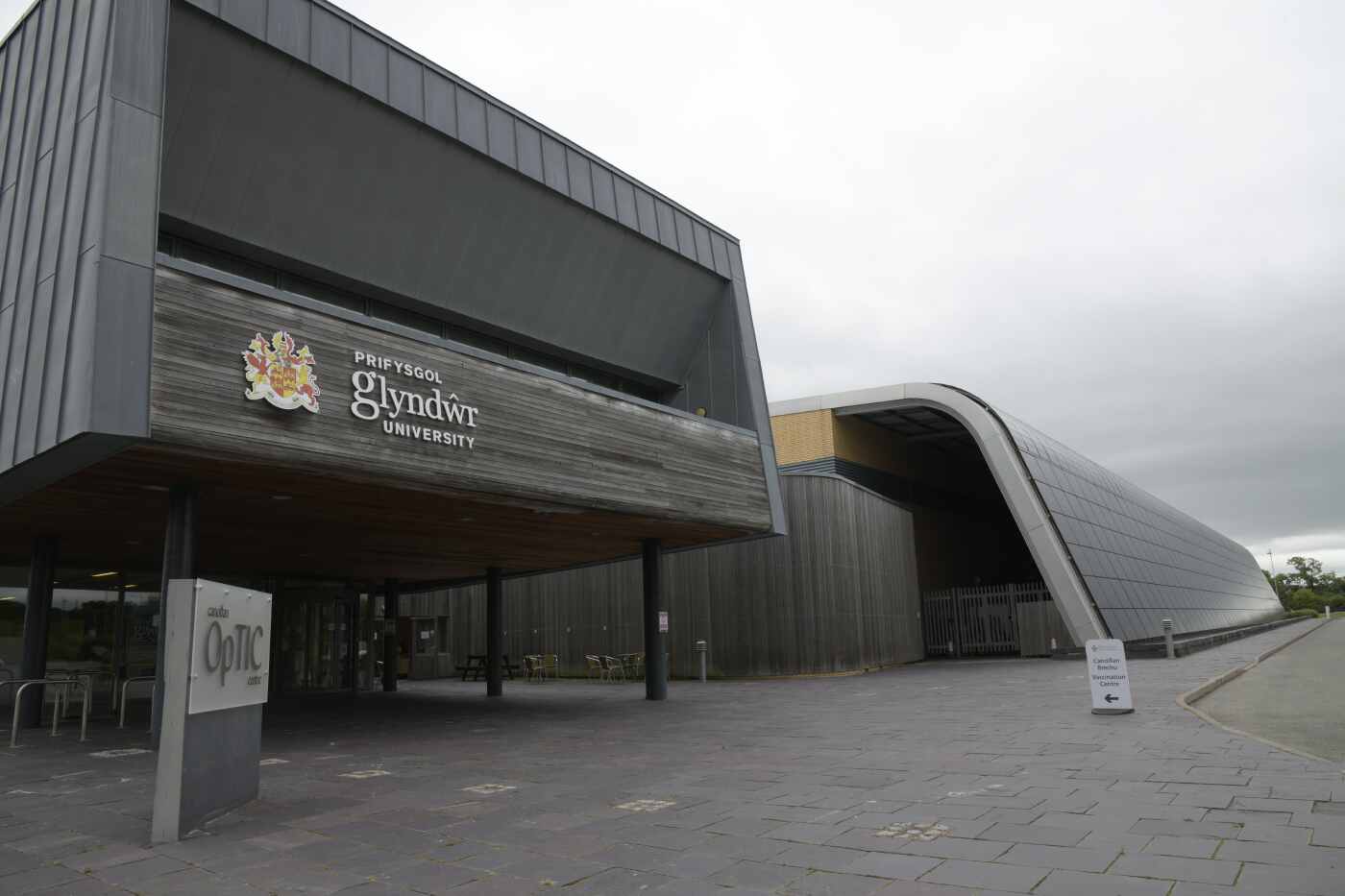Early career Researchers awarded £27,000 for Engineering projects aiming to reduce waste

Date: Thursday 23rd March, 2023
Wrexham Glyndwr University has awarded more than £27,000 to two early career research teams, who are working on Engineering projects aiming to reduce electronic and optical materials waste.
These teams are postdoctoral and PhD researchers within the Engineering department.
The first team, based at the university’s OpTIC Technology Centre in St. Asaph won £24,833 to produce new materials for thin film optical coatings that have excellent wear-resistance to withstand more extreme environments.
While, the second winner, a PhD student, won £2,500 to buy specialist equipment to test results from computer simulations for reducing heat damage in electronic devices.
The funding has come from the Higher Education Funding Council Wales (HEFCW).
The team from OpTIC includes Dr Andrew Clayton and Dr David Coathup, who are both Postdoctoral Researchers in thin film coating materials for optical devices. Their application impressed the panel of judges in a competition bid entitled ‘Impact Generator’.
Andrew and David will produce new durable film coatings to be tested using high powered lasers over the next four months. This work will impact the production of optical components that use protective coatings and extend their lifetime durability over and above conventional materials.
Through the Centre for Photonics Expertise (CPE) a Welsh European Funding Office (WEFO) Research Programme, the OpTIC Centre has been able to invest £1.2m in a state of the art coating facility and has recently secured further investment through SMART Cymru and their Building Capacity for Collaboration Bid 2023.
On hearing about the WGU award win, Dr Clayton said: “Receiving this funding is a real boost to the coating facility at The OpTIC Centre. It will build on the recent success gained from the SMART award for capital equipment, which will allow the coating plant to produce innovative thin film materials.
“This HEFCW funding awarded by the Wrexham Glyndwr University Research office will provide valuable resource to develop these materials for optical coatings used in high-powered laser applications and support the metrology capability secured through the North Wales Growth Deal.
“It will also allow for exploration of further research opportunities in carbon-zero energy generation, exploiting the broad range of properties these innovative materials exhibit.”
The PhD student, Andrew Sharp, is currently also a Senior Lecturer in Electrical Engineering at Wrexham Glyndwr University.
Andrew and colleagues have so far only been able to simulate results using computer programs. This money will allow the team to buy materials and construct a testing station to understand the optimum temperature for extending the life of electronic components.
The researchers hope that the results can be integrated into the design of electric drives where components are under high thermal stresses, such as in electric vehicles. The work hopes to encourage industrial collaborations to further develop this advanced engineering.
Andrew added: “I am delighted to have been successful in my bid for this research funding.
“This funding will allow me to make the physical measurements necessary to validate the computer simulation results that I have obtained so far. This will be a crucial aspect of my PhD, which is in an area of study that will result in a better understanding of the heat distribution within semiconductor electronic components.”
These awards highlight the institution’s innovative research that aims to make a real impact for businesses, society, and the environment.
Wrexham Glyndwr University is also proud to support Early Career Researchers’ professional development and to further their career goals.